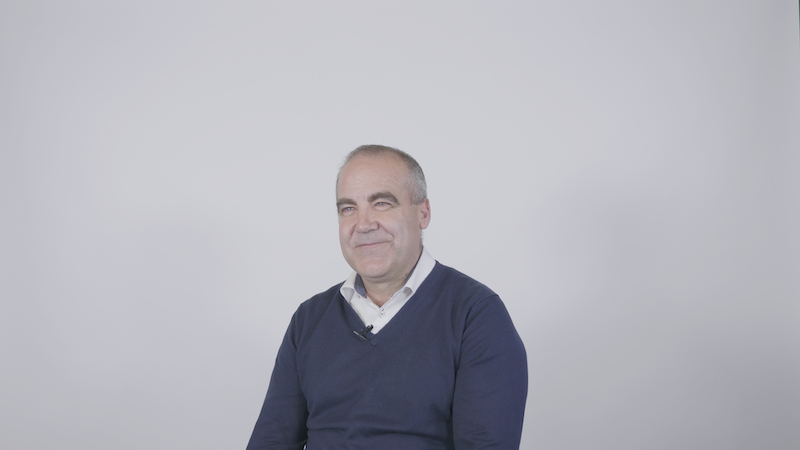Brian Carney, a Portfolio Manager at Canso Investment Counsel — and expert on the U.S. Federal Reserve – came by FP Headquarters so we could pick his brain on all things finance with a mini lesson on the Fed, of course.
See a full transcript below of our 10 question rapidfire with Brian, where we talk about why the Fed is important, his favourite sports memory, and the one thing he thinks millennials get wrong about investing (hint: it has to do with robo advice).
Q: Why is the Fed relevant?
A: So, if you think about why the Fed was created way back when, the objective back then was to create a safer and more stable monetary financial system. Aspirational, I know; still very relevant today. If you think about it, if the Fed hadn’t been around in 2008, to help manage through that very difficult time, the world might be a very different place today.
Q: How are Canadians affected by Fed policy decisions?
A: So, the Fed regulates the cost of credit in the US. The US is the world’s biggest economy. The US is Canada’s biggest trading partner. The US dollar is the world’s reserve currency. So the cost of credit, in the US, interest rates, affects everywhere else in the world including Canada. And since we’re right next door, it very much impacts us every day. It doesn’t mean interest rates are going to be exactly the same, but if rates are going up in the US there’s a pretty good chance they’re going up in Canada, and vice-versa.
Q: What is the best book you’ve ever read?
A: Best book I’ve ever read… That implies that I’ve read a book. (Laughs) The best book I’ve ever read, which I think everyone should read, is a book called Bury My Heart At Wounded Knee which is by Dee Brown. Very sobering, it’s not a light read, but I think it’s very important everyone read it.
Q: What is the most common misconception about the Fed that is widely believed to be true?
A: (For the) average person who’s not involved in the financial markets, I think they view the Fed as a black box. There’s a group of people, they go behind a closed door, they make a decision, it gets announced and away we go. I think the reality is, the Fed is one of the most open and transparent organizations on the planet. So, you go on their website and they tell you how they’re organized, who’s involved, why they’ve made decisions, and they’ll even tell you when they’re going to make their next decision.
Q: What is your favourite sports memory?
A: I grew up in Edmonton, and we used to listen during the playoffs, my Mom would have the Edmonton Eskimos games on the radio in the kitchen because they would blackout (the games on) the TV. So I used to sit there with my Mom and listen to Edmonton Eskimo games during the playoffs. Fantastic.
Q: Do you believe the effects of the Fed’s policies as they are today will be as relevant globally in 20 years? 100 years?
A: Will the Fed be relevant? 100%. So to the extent—that assumes of course, 50, or 100 years from now consumers are still buying products, businesses are still investing. And all, or some, of those purchases and investments are financed, so the cost of interest rates are important? Absolutely. It will be as relevant in the future as it is today.
Q: What is your go-to late night snack?
A: This sounds really boring, but I’ve always been a big cracker fan. Like a nice salted cracker. (OFF CAMERA: NO CHEESE?) No cheese, just lots of salt. Like a whole sleeve, eat the whole sleeve. Yep. (Laughs)
Q: What do you think is the biggest thing millennials get wrong about investing?
A: I don’t know if millennials get it wrong, but I think the advertising would suggest to millennials that investing is very easy. You know, you do it yourself, you buy a stock it goes up you sell it, then you go by another one, it goes up… The world doesn’t work that way.
Q: What would be the biggest impact on life if the Fed ceased to exist tomorrow?
A: Maybe the best way to think about it is, if you think about all the teenagers in the world. Maybe there’s nine-hundred million of them. If you took them all away from their parents tomorrow and said ‘why don’t you guys self-regulate and why don’t you guys make all of your own investment decisions in a vacuum,’ there’s probably five or six of them that will do a pretty good job. Everyone else would have a pretty hard time, so, we need the Fed (Laughs) We need some guidance, we need some supervision. Doesn’t mean they always make the right decisions (as parents don’t always make the right decisions) but, it’s good to have them around.
Q: Who is the one person you’d most like to interview if they were hooked up to a lie detector test?
A: Ahhh, the lie detector question. You know what, I’d like to hook up Carswell—sorry, I should say his proper name, John Carswell, to a lie detector as I don’t believe he was ever chug-a-lug champion at RMC. I’d like to get the truth on that story actually.


